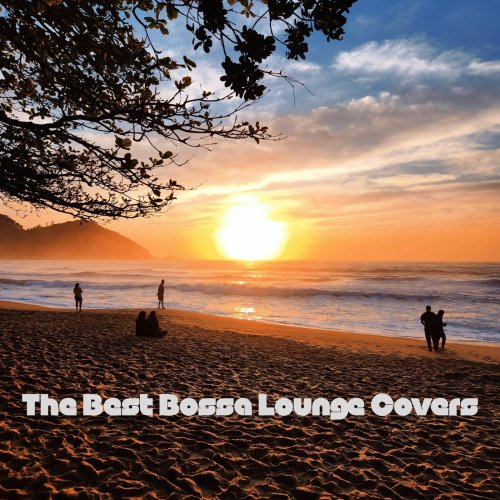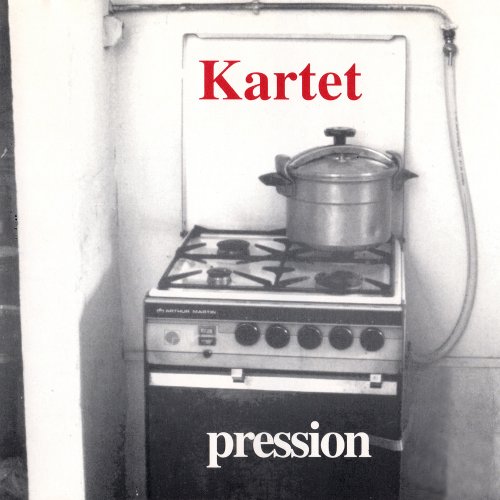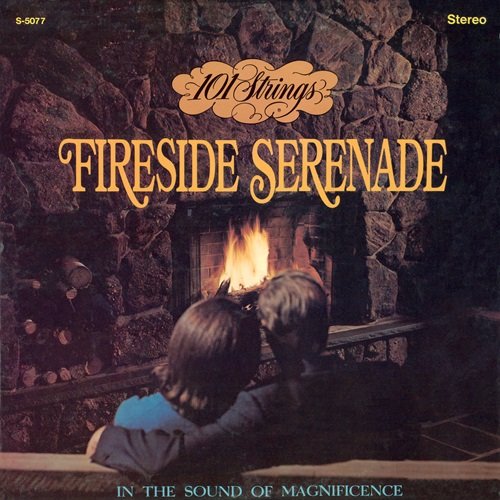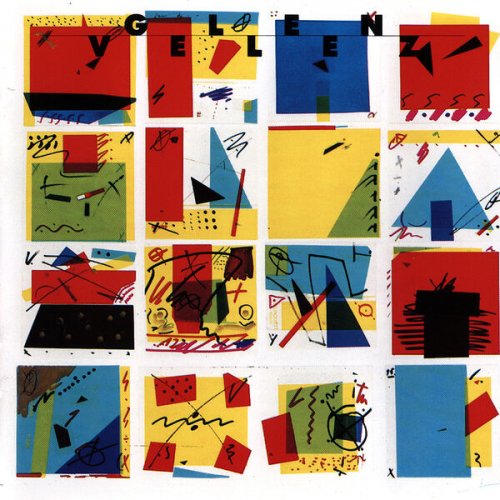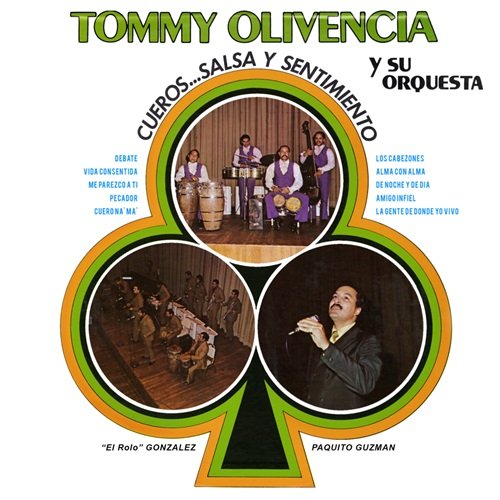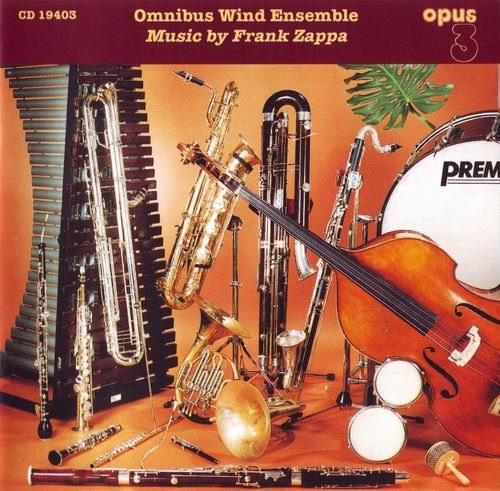The Sons Of The Pioneers - The Sons Of The Pioneers Sing Legends Of The West (1965/2015) [Hi-Res]
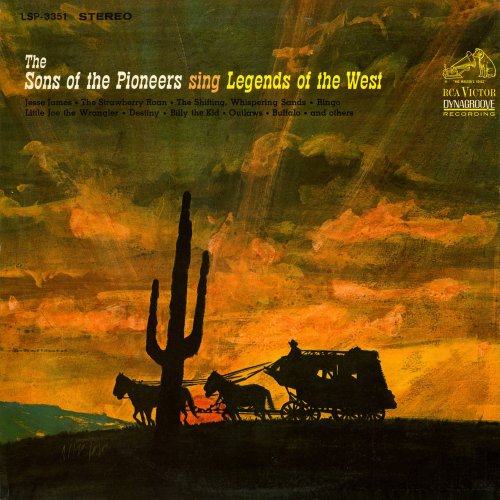
Artist: The Sons Of The Pioneers
Title: The Sons Of The Pioneers Sing Legends Of The West
Year Of Release: 1965/2015
Label: Legacy Recordings
Genre: Country
Quality: FLAC (tracks) 24/96
Total Time: 33:48
Total Size: 715 MB
WebSite: Album Preview
Tracklist:Title: The Sons Of The Pioneers Sing Legends Of The West
Year Of Release: 1965/2015
Label: Legacy Recordings
Genre: Country
Quality: FLAC (tracks) 24/96
Total Time: 33:48
Total Size: 715 MB
WebSite: Album Preview
01. Buffalo (2:34)
02. Destiny (2:24)
03. The Strawberry Roan (2:46)
04. The Shifting, Whispering Sands (2:40)
05. Little Joe, The Wrangler (3:51)
06. O Bury Me Not On The Lone Prairie (2:52)
07. Ringo (3:20)
08. Me And My Burro (2:28)
09. Outlaws (3:20)
10. Billy The Kid (3:01)
11. Green Ice And Mountain Men (2:17)
12. Jesse James (2:15)
The Sons of the Pioneers were the foremost vocal and instrumental group in western music, and the definitive group specializing in cowboy songs, setting the standard for every group that has come since. They were also one of the longest-surviving country music vocal groups in existence, going into their seventh decade. More important than their longevity, however, the greatest achievement of the Sons of the Pioneers lay with the sheer quality of their work. Their superb harmonies and brilliant arrangements delighted three generations of listeners and inspired numerous performers.
The group's roots lay in the depths of the Great Depression, a time when the American spirit, and the spirits of millions of Americans, had nearly been broken by physical, economic, and emotional privation. Cincinnati-born Leonard Slye (born November 5, 1911) had headed out to California in the spring of 1931 from his native Ohio, working jobs ranging from driving a gravel truck to picking fruit for the Del Monte company in California's Central Valley. By sheer chance, he entered an amateur singing contest on a Los Angeles radio show called Midnight Frolics and a few days later got an invitation to join a group called the Rocky Mountaineers.
Slye played guitar, sang, and yodeled with the group, and before long they wanted an additional singer so they could extend their range. The man who answered the ad was Bob Nolan (born Robert Clarence Nobles, April 1, 1908, New Brunswick, Canada), from Tucson, AZ. Nolan had lived the life of an itinerant singer for a few years before settling down in Los Angeles, where he'd worked as a lifeguard as well as tried to make a living singing. Nolan joined the Rocky Mountaineers, and he and Slye developed a harmonious relationship that worked for several months, until he exited in frustration over the group's lack of success. Nolan was, in turn, replaced by Tim Spencer (born Vernon Spencer, July 13, 1908, Webb City, MO), who'd been earning his keep working in a Safeway Stores warehouse.
Slye, Spencer, and another singer named Slumber Nichols quit the Rocky Mountaineers in the spring of 1932 to form a trio of their own, which never quite came off. Instead, Slye and Spencer spent a year moving in and out of the lineups of short-lived groups like the International Cowboys and the O-Bar-O Cowboys. The latter group broke up following a disastrous tour, and Spencer left music for a time. Slye decided to push on with an attempt at a career, joining yet another group, Jack LeFevre and His Texas Outlaws, who were fixtures on a local Los Angeles radio station.
In early 1933, things began looking up. Slye convinced Spencer to give up the security of a steady job once more, and also recruited Nolan, who was working as a caddy at a golf course in Bel Air. Weeks of rehearsals followed as they honed their singing hour after hour, while Slye continued to work with his radio singing group and Spencer and Nolan wrote songs.
The group was called the Pioneer Trio and made its debut on KFWB radio, following an audition that included the Nolan song "Way Out There." Their mix of singing and yodeling, coupled with their good spirits, won them a job. Within a few weeks, they were developing a large following of their own on LeFevre's show, with their harmony singing eliciting lots of mail, and soon they were featured on the station's morning and evening lineups.
The group in its earliest form consisted of Slye, Nolan, and Spencer on vocals, with Nolan playing string bass and Slye on rhythm guitar. A fourth member was needed to firm up their sound, and early in 1934 he arrived in the form of fiddle player Hugh Farr (born Plano, TX, December 6, 1906), who also added a bass voice to the group and occasionally served as lead singer.
The group's name was altered by accident on the eve of their going national. On one broadcast, the station's announcer introduced them as "The Sons of the Pioneers." Asked why he'd done this, the announcer gave the excuse that they were too young to have been pioneers, but that they could be sons of pioneers. The name seemed to stick, it fit well, and as they were no longer a trio, it made sense.
The Sons of the Pioneers' fame quickly spread well beyond the confines of Los Angeles, as a result of an informal syndication project undertaken by their station, which recorded the group in 15- and 30-minute segments for rebroadcast all over the country. It wasn't long before a recording contract with the newly founded Decca label (now part of MCA) was signed, and on August 8, 1934 (the same day that Bing Crosby made his debut for the label), the Sons of the Pioneers made their first commercial recording. The group would cut 32 songs with Decca over the next two years.
One of the songs cut at the first session was a Nolan original called "Tumbling Tumbleweeds," which he'd originally written on a rainy day in 1932 as "Tumbling Leaves." The group had introduced it on the radio as "Tumbling Leaves," but later changed it to "tumbleweeds" as more in keeping with their western image. It became their theme song and was quickly picked up by singers and bands all over the country. In 1935, the song was also licensed for use as the title of a Gene Autry Western, the first – but not the last time – that the paths of Autry and the Pioneers would cross.
In 1935, a fifth member, Farr's brother Karl (born Rochelle, TX, April 25, 1909), who had played with Hugh on the radio during the 1930s, was added to the group on lead guitar, bringing the Pioneers' instrumental capabilities up to a par with their singing. Early that same year, they began appearing in movies for the first time, initially in short films and also providing the music for an Oswald the Rabbit cartoon, before making their first appearance in a full-length movie, The Old Homestead. Later that same year, they appeared in The Gallant Defender. They followed this with Song of the Saddle (1936), starring singer-turned-cowboy star Dick Foran, then with The Mysterious Avenger (1936) and the Crosby vehicle Rhythm of the Range. That same year, they appeared in a Autry movie, The Big Show.
Spencer left the group in September of 1936 and was replaced by Lloyd Perryman (born Ruth, AR, January 29, 1917), who was a fan of the Pioneers as well as a veteran of several singing groups, and who had already served as a "fill-in" Pioneer on occasion. Perryman was later to become a key member of the group, doing most of their vocal arrangements, serving as their on-stage spokesman, and handling the group's business affairs as well, and would remain with them longer than anyone, 41 years. Their broadcasts, concerts, and film appearances continued with work in the Foran-starring California Mail at Warner Bros. and Autry's The Old Corral at Republic. Finally, in late 1937, the group was signed by Columbia to work in Charles Starrett's Western films on a steady basis, beginning with The Old Wyoming Trail.
It was the movies that led to the next major change in the Pioneers' lineup. Slye had previously played bit acting parts in a handful of B-Westerns, including an appearance in a small role in an Autry film, under the name Dick Weston. But in 1938, Autry and the studio found themselves in a contractual dispute that they were unable to resolve, and the cowboy star failed to report for his next movie. Autry was placed on suspension while the studio began looking for a replacement that they could put into the picture.
The group's roots lay in the depths of the Great Depression, a time when the American spirit, and the spirits of millions of Americans, had nearly been broken by physical, economic, and emotional privation. Cincinnati-born Leonard Slye (born November 5, 1911) had headed out to California in the spring of 1931 from his native Ohio, working jobs ranging from driving a gravel truck to picking fruit for the Del Monte company in California's Central Valley. By sheer chance, he entered an amateur singing contest on a Los Angeles radio show called Midnight Frolics and a few days later got an invitation to join a group called the Rocky Mountaineers.
Slye played guitar, sang, and yodeled with the group, and before long they wanted an additional singer so they could extend their range. The man who answered the ad was Bob Nolan (born Robert Clarence Nobles, April 1, 1908, New Brunswick, Canada), from Tucson, AZ. Nolan had lived the life of an itinerant singer for a few years before settling down in Los Angeles, where he'd worked as a lifeguard as well as tried to make a living singing. Nolan joined the Rocky Mountaineers, and he and Slye developed a harmonious relationship that worked for several months, until he exited in frustration over the group's lack of success. Nolan was, in turn, replaced by Tim Spencer (born Vernon Spencer, July 13, 1908, Webb City, MO), who'd been earning his keep working in a Safeway Stores warehouse.
Slye, Spencer, and another singer named Slumber Nichols quit the Rocky Mountaineers in the spring of 1932 to form a trio of their own, which never quite came off. Instead, Slye and Spencer spent a year moving in and out of the lineups of short-lived groups like the International Cowboys and the O-Bar-O Cowboys. The latter group broke up following a disastrous tour, and Spencer left music for a time. Slye decided to push on with an attempt at a career, joining yet another group, Jack LeFevre and His Texas Outlaws, who were fixtures on a local Los Angeles radio station.
In early 1933, things began looking up. Slye convinced Spencer to give up the security of a steady job once more, and also recruited Nolan, who was working as a caddy at a golf course in Bel Air. Weeks of rehearsals followed as they honed their singing hour after hour, while Slye continued to work with his radio singing group and Spencer and Nolan wrote songs.
The group was called the Pioneer Trio and made its debut on KFWB radio, following an audition that included the Nolan song "Way Out There." Their mix of singing and yodeling, coupled with their good spirits, won them a job. Within a few weeks, they were developing a large following of their own on LeFevre's show, with their harmony singing eliciting lots of mail, and soon they were featured on the station's morning and evening lineups.
The group in its earliest form consisted of Slye, Nolan, and Spencer on vocals, with Nolan playing string bass and Slye on rhythm guitar. A fourth member was needed to firm up their sound, and early in 1934 he arrived in the form of fiddle player Hugh Farr (born Plano, TX, December 6, 1906), who also added a bass voice to the group and occasionally served as lead singer.
The group's name was altered by accident on the eve of their going national. On one broadcast, the station's announcer introduced them as "The Sons of the Pioneers." Asked why he'd done this, the announcer gave the excuse that they were too young to have been pioneers, but that they could be sons of pioneers. The name seemed to stick, it fit well, and as they were no longer a trio, it made sense.
The Sons of the Pioneers' fame quickly spread well beyond the confines of Los Angeles, as a result of an informal syndication project undertaken by their station, which recorded the group in 15- and 30-minute segments for rebroadcast all over the country. It wasn't long before a recording contract with the newly founded Decca label (now part of MCA) was signed, and on August 8, 1934 (the same day that Bing Crosby made his debut for the label), the Sons of the Pioneers made their first commercial recording. The group would cut 32 songs with Decca over the next two years.
One of the songs cut at the first session was a Nolan original called "Tumbling Tumbleweeds," which he'd originally written on a rainy day in 1932 as "Tumbling Leaves." The group had introduced it on the radio as "Tumbling Leaves," but later changed it to "tumbleweeds" as more in keeping with their western image. It became their theme song and was quickly picked up by singers and bands all over the country. In 1935, the song was also licensed for use as the title of a Gene Autry Western, the first – but not the last time – that the paths of Autry and the Pioneers would cross.
In 1935, a fifth member, Farr's brother Karl (born Rochelle, TX, April 25, 1909), who had played with Hugh on the radio during the 1930s, was added to the group on lead guitar, bringing the Pioneers' instrumental capabilities up to a par with their singing. Early that same year, they began appearing in movies for the first time, initially in short films and also providing the music for an Oswald the Rabbit cartoon, before making their first appearance in a full-length movie, The Old Homestead. Later that same year, they appeared in The Gallant Defender. They followed this with Song of the Saddle (1936), starring singer-turned-cowboy star Dick Foran, then with The Mysterious Avenger (1936) and the Crosby vehicle Rhythm of the Range. That same year, they appeared in a Autry movie, The Big Show.
Spencer left the group in September of 1936 and was replaced by Lloyd Perryman (born Ruth, AR, January 29, 1917), who was a fan of the Pioneers as well as a veteran of several singing groups, and who had already served as a "fill-in" Pioneer on occasion. Perryman was later to become a key member of the group, doing most of their vocal arrangements, serving as their on-stage spokesman, and handling the group's business affairs as well, and would remain with them longer than anyone, 41 years. Their broadcasts, concerts, and film appearances continued with work in the Foran-starring California Mail at Warner Bros. and Autry's The Old Corral at Republic. Finally, in late 1937, the group was signed by Columbia to work in Charles Starrett's Western films on a steady basis, beginning with The Old Wyoming Trail.
It was the movies that led to the next major change in the Pioneers' lineup. Slye had previously played bit acting parts in a handful of B-Westerns, including an appearance in a small role in an Autry film, under the name Dick Weston. But in 1938, Autry and the studio found themselves in a contractual dispute that they were unable to resolve, and the cowboy star failed to report for his next movie. Autry was placed on suspension while the studio began looking for a replacement that they could put into the picture.
Download Link Isra.Cloud
The Sons Of The Pioneers - The Sons Of The Pioneers Sing Legends Of The West (1965/2015) [Hi-Res]
My blog
The Sons Of The Pioneers - The Sons Of The Pioneers Sing Legends Of The West (1965/2015) [Hi-Res]
My blog

